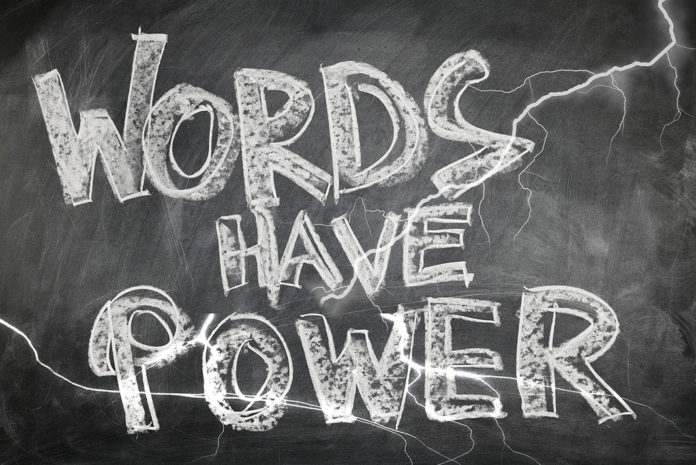Reading an article in Mail & Guardian (May 19 to 25, 2017) on Suicide and the violence of our words by Lizette Rabe, led me to thinking about how the language we use can affect our behaviour and that of those around us.
Removing judgement and blame
In this article Lizette Rabe, whose son died of depression in 2009, discusses how the word ‘selfmoord’ or ‘committed suicide’ leads to blame and judgement and prevents the family and friends left behind from being supported, leading to “feelings of loneliness, blame and lack of support.” She suggests that we should use kinder language and refer to the cause of death, ‘died of depression’ or ‘died of suicide’ which removes the judgement and blame and allows the same sympathetic support given to those whose family members die from other causes. Lizette Rabe’s advocacy on this issue led to changes in the official reporting styles of most Afrikaans media so that they now use the term ‘selfdood’ instead of ‘selfmoord’.
Stereotypes and stigma
Language that is used commonly referring to mental illness can also lead to negative consequences. When we refer to people who are having a meltdown as ‘psycho’, ‘nutcase’, ‘disturbed’ and ‘mad’ can lead to discouraging people from seeking help for mental health issues by stereotyping or stigmatising.
Unthoughtful language can lead to aggression and could exacerbate mental illness.
Building aggression
Think about language used in sport. Lately, I have read the expression “Well done, you smashed them!” on more than one occasion and the sport was not boxing, it was cycling. What message are we conveying to our peers when we congratulate them in this manner? What happened to “great team work”, “excellent tactics”, and “well played”? This builds rather than tearing down and is far kinder, more accurate and does not have the possible negative consequence of building aggression.
Kindness and positivity
Driving is another area where language can train our children towards becoming good, safe drivers or using poor language that could lead to developing aggressive drivers which could lead to accidents, injury or death. We shout at other drivers, call them ‘idiots’, ‘stupid’ and yell “what are you doing?” This often takes place in front of our children and friends. Slowing down a bit, thinking kinder thoughts and using positive language will lead to safer driving, in us and in our children and friends.
If we shift language we can shift perceptions and behaviour and this can have the positive effect of being kinder to people, raising better sports people and drivers.“Showing kindness and sensitivity in the language we use should not be a grave imposition on our being — it should be a basic requirement of our humanity” (Oscar Rickett).
Lizette Rabe has authored a book Hope: Consolation for the Inconsolable – A guide for Those Who Have Lost Loved Ones to Suicide.
If you feel a need to talk to a social worker, you can contact Jewish Community Services 021 462 5520.











